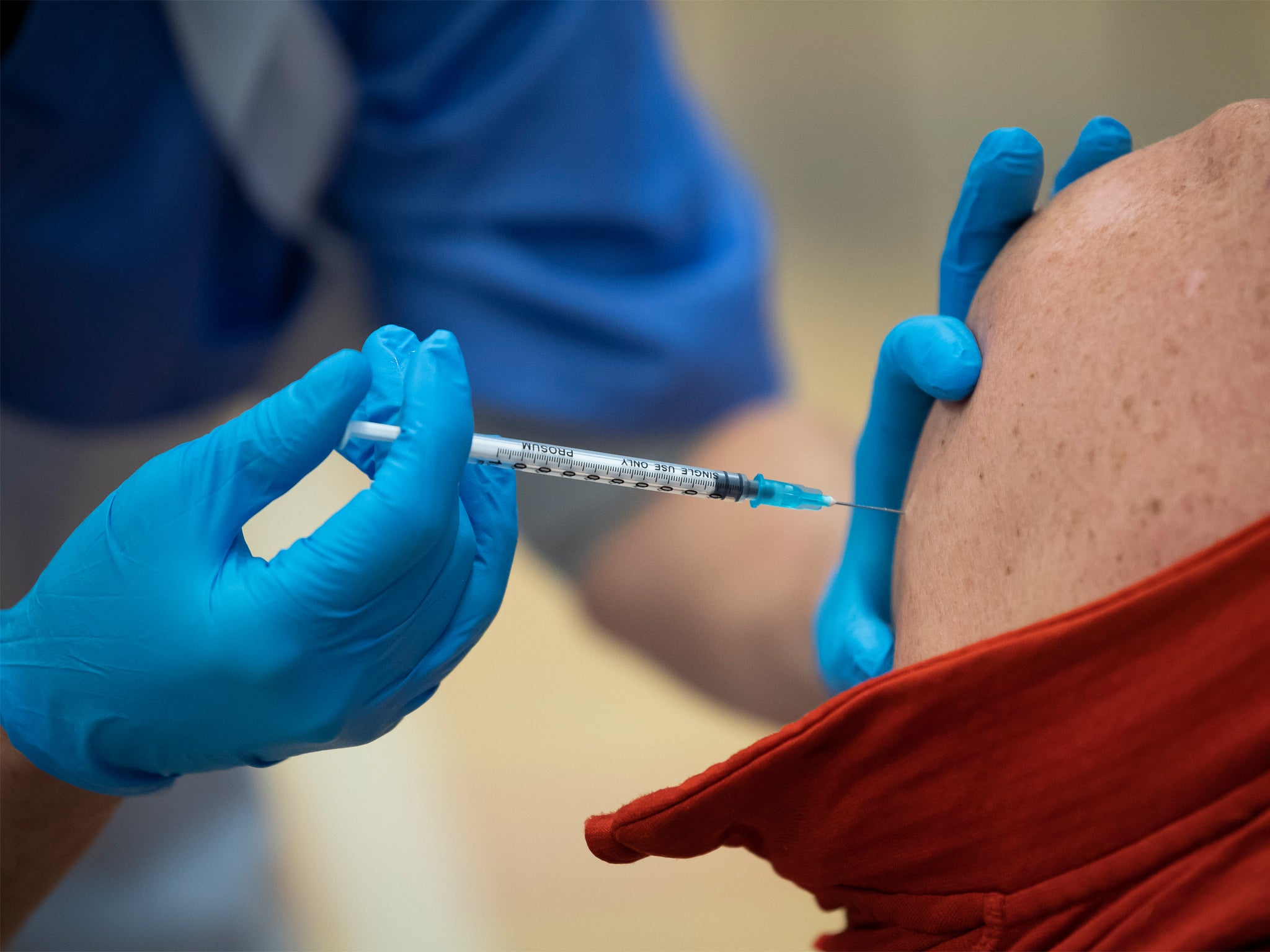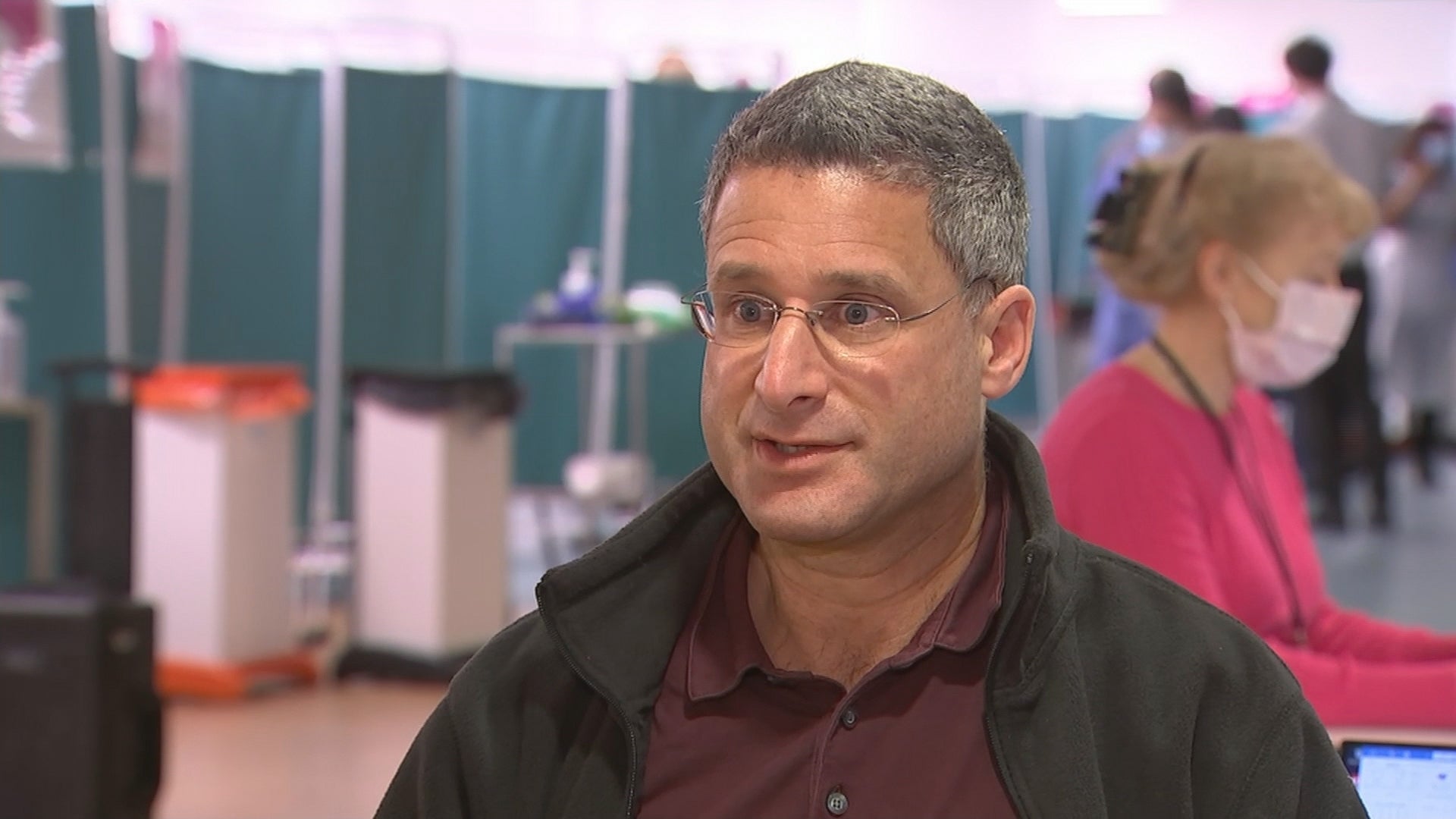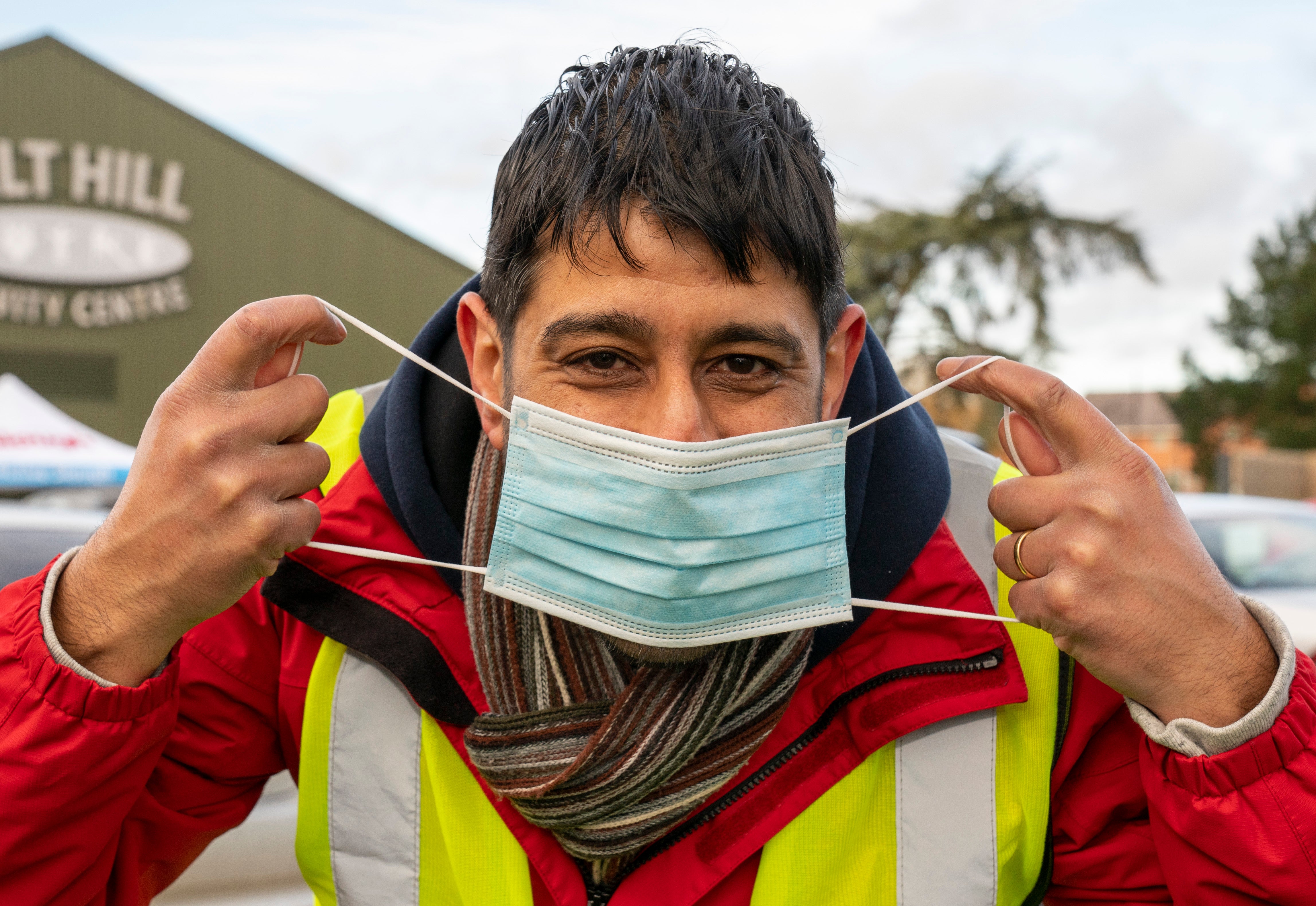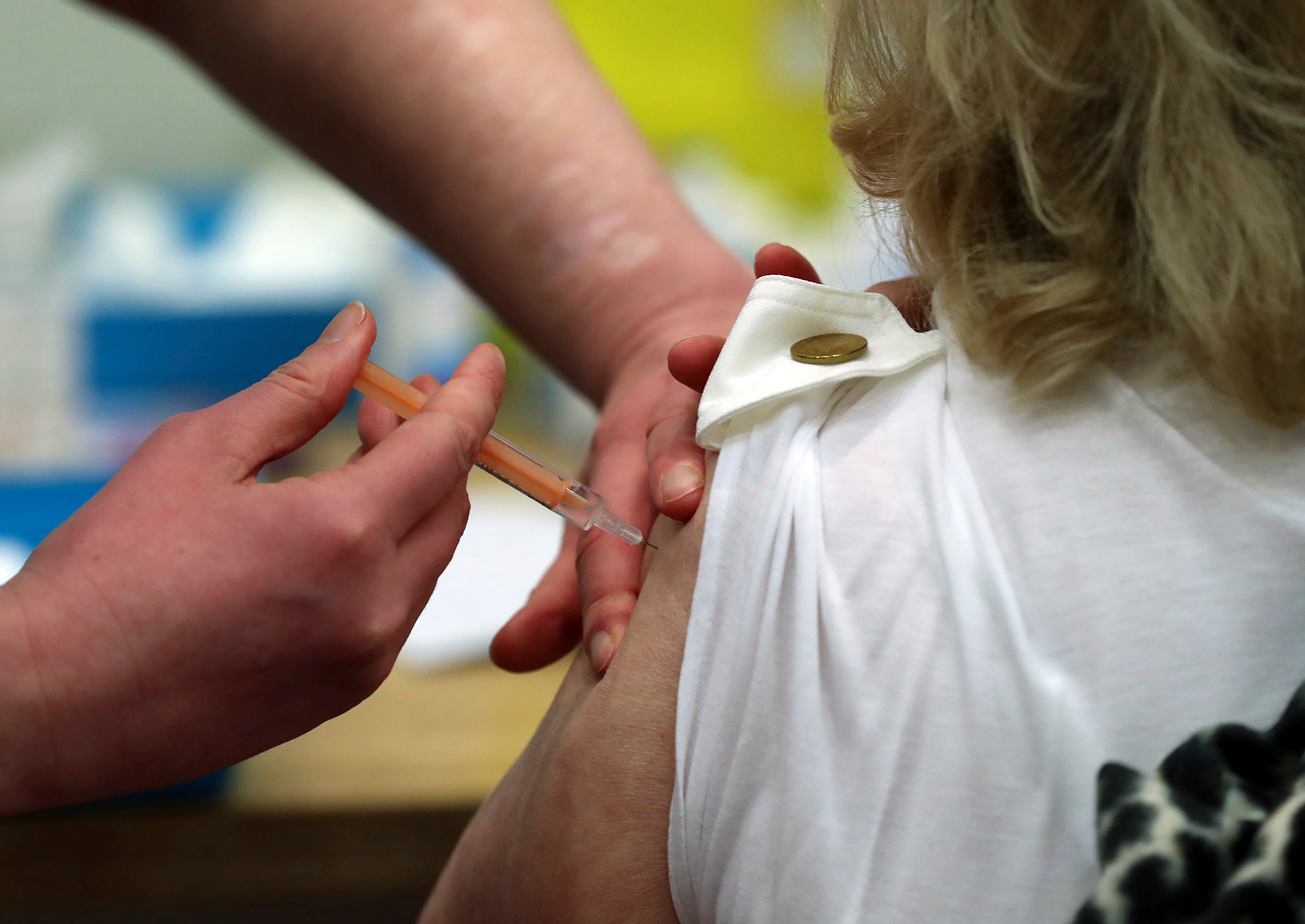From soldiers to scientists, UK unites to deliver Covid jabs to those most in need

Thousands of people across the UK – from healthcare workers to army reservists – have come together to ensure the country’s mammoth vaccine rollout programme can reach those who are most in need.
After becoming the first country to approve a vaccine for use, the UK government has bought hundreds of millions of vaccine doses and distributed them to all parts of the UK.
Today, the country has three authorised vaccines for Covid-19 – Pfizer/BioNTech, Oxford/AstraZeneca and Moderna – and the government’s priority is to save as many lives as possible, as quickly as possible, while also reducing the hospitalisations that are creating such pressure on the NHS.
Across the UK, millions of people have already received at least the first dose of their jab as part of the biggest vaccination programme in NHS history.
And that has only been made possible because of the hard work of thousands of people, not only the scientists who engineered the jabs in the first place but the army reservists building the vaccination centres and volunteers staffing them.
Major Charlie Martell, Officer Commanding in the Jersey Field Squadron of the Royal Engineers, is one of those who has helped make the goal of vaccinating as many people as possible, as quickly and safely as possible, a reality.
Together, his unit constructed a centre in Jersey that will be able to handle up to 1,500 vaccinations a day.
The former Network Rail programme manager, who graduated from the Sandhurst military academy, said he and his colleagues had worked “flat out” on the project.
“This is exactly what this squadron is here for, in terms of local resilience. It was a local reserve unit supporting the local area and solving local issues,” he said.
“Everyone is working incredibly hard so that the vaccination programme stays on track.”

The rollout has been a success in large part because NHS England and NHS Improvement, NHS Wales, NHS Scotland, and Health and Social Care Northern Ireland have decades of experience in delivering large-scale vaccination programmes, while the armed forces continue to support the delivery of vaccines across the UK – from Aberystwyth to Aberdeen.
Calum MacLeod, a lieutenant with the Royal Scots Dragoon Guards based in Leuchars, has been helping to deliver vaccination centres in Scotland.
“Every single organisation, whether that be NHS Scotland, the military, the local authorities or the contractors is bringing its own expertise,” he said. “The army brings organisational capacity and can-do attitude. It’s a vast effort by everyone involved.
“When we take off the uniform at night, we are just normal people and we want to get back to our regular lives – going to the pub at weekends, meeting friends in restaurants or parks.
“We just want to get everything back on track like everyone else, and we’re more than happy to do our bit.”

Professor Saul Faust, director of the National Institute for Health Research Southampton Clinical Research Facility at the University of Southampton, has dedicated recent months to delivering trials of Covid vaccines, treatments and diagnostic tests.
“I work in national networks and groups to make best use of the superb UK clinical research infrastructure which has delivered almost all of the global scientific advances in Covid-19 – from the Recovery trial results to vaccines to identification of the new mutations via world leading scientific expertise and organisation,” he said.
"With my paediatric infectious diseases and immunology expert hat on, I have also been very involved in a national group looking at the transmission of Covid-19 in schools.
“The UK trials have been done by a huge collaborative effort across the whole of the UK. It's been brilliant – an amazing collaboration across the research and NHS networks.”

Approved vaccines will continue to be available across the UK, free at the point of delivery, according to need, not ability to pay.
While the UK government has successfully procured vaccines on behalf of all parts of the country and has prioritised citizens who are at greatest risk, vaccination will be managed by the health services in each nation.
With this in mind, the UK government is working closely with the devolved administrations to ensure all four nations are aligned in their approach to deployment of the vaccine across the country.
Corporal Sally Woodcock, an RAF clarinettist working at a vaccine hub in Powys, Wales, described the level of dedication from staff and volunteers as “phenomenal”.
She said: “We’re working with fantastic people and staff, and all the volunteers are absolutely fantastic. And the volunteers give so many hours of their time, even after working from home all day.
“I guess musicians were chosen for this particular job because we can't do our normal jobs. We can't be in groups so it's brilliant that we are able to do this, and support the NHS. I was pleased to be able to come and help in such a beautiful part of Wales.”
She added: “It's a good step towards normality. It's good to know that it's out there and people are getting the vaccine. So hopefully we'll be able to see more people and restrictions will slowly be lifted in the right way as the year progresses.”
So far, the government has secured access to a total of 407 million vaccine doses for all the nations of the UK through agreements with multiple separate vaccine developers, giving the UK the best chance of securing a safe and effective vaccine at the quickest speed.
This, it is hoped, will offer a route back to normality after an incredibly difficult year for so many.
Rajan Bindra, 44, an aviation consultant who lives in Slough, Berkshire, volunteered to help manage car parking at a local vaccination centre.
“We're the first port of call for anybody who comes along to the vaccine centre," he said. "I wanted people to see my smiling eyes behind a mask welcoming them so they were put at ease. We made a point of referring to them as ‘customers’ or ‘guests’ because we wanted to treat everyone with dignity and respect.”

He said volunteering gave him a “real sense of purpose” when he was out of work and that he hoped to help in the future even though he had started a new job.
“I feel very attached to it,” he said. “I’m hoping to be able to do some more support work at weekends.”
Deidre Webb, 57, from Belfast, the director of nursing at Northern Ireland's Public Health Agency, has managed the rollout of the vaccination programme to care homes.
"Everyone has been so enthusiastic and very keen to help out," she said. "Within our large clinics the people who allow us to work effectively are the house porters and the drivers and the cleaners.
"They deliver everything to us and help with the logistics of the operation. They've done a massive job and we really need them. Then we have a huge volunteer work force helping people get to clinics. They are all the unsung heroes of this."

Vaccines are the best way to protect people from coronavirus as they are carefully designed to prevent disease, rather than treat the problem once people are already infected and unwell.
The Covid vaccine, like any other, works by teaching your immune system how to defend itself against attack.
To create a vaccine, the virus is weakened, or completely inactivated. This means it will not cause disease. When this form of the virus is introduced to the immune system, it trains the body to recognise the virus, creating protective antibodies.
These form the frontline defence against possible harm from Covid and mean that if the virus is encountered naturally, the body has already been trained to protect against it.